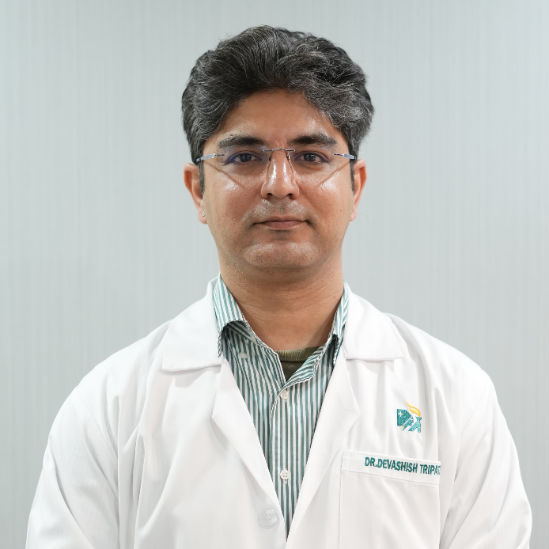CEA Test Overview and Normal Range
Know about the cea test, when it is done, understanding the results, how the test is performed and tips for managing the normal levels and more.

Written by Dr. M L Ezhilarasan
Reviewed by Dr. Shaik Abdul Kalam MD (Physician)
Last updated on 1st Sep, 2025

Introduction
If you have been advised to take a Carcinoembryonic Antigen (CEA) test, you might have questions about what it is, why it’s needed, and what the results mean. This article will help you understand the basics of the CEA test in simple terms, including its purpose, normal range, and what abnormal results could indicate.
What Is a CEA Test?
The CEA test measures the level of Carcinoembryonic Antigen, a protein that is often found in higher amounts in people with certain types of cancer, especially colorectal cancer. However, it can also be elevated in other conditions, such as infections, inflammation, or even in smokers.
This test is not used to diagnose cancer on its own but is often used:
• To monitor cancer treatment (to see if therapy is working).
• To check for cancer recurrence after treatment.
• Along with other tests if cancer is suspected.
Consult an Oncologist for Personalised Advice
When Is a CEA Test Recommended?
Your doctor may suggest a CEA test if:
• You have been diagnosed with colorectal, lung, breast, pancreatic, or ovarian cancer (to track progress).
• You have symptoms that could indicate cancer (such as unexplained weight loss, persistent pain, or changes in bowel habits).
• You are undergoing cancer treatment (to see if it’s effective).
• You have completed cancer treatment (to check for recurrence).
Understanding CEA Test Results: Normal Range
CEA levels are measured in nanograms per milliliter (ng/mL). The normal range can vary slightly depending on the lab, but generally:
• Non-smokers: 0 to 3 ng/mL
• Smokers: 0 to 5 ng/mL
What Does a High CEA Level Mean?
A higher-than-normal CEA level does not always mean cancer, but it can be a sign of:
• Cancer (colorectal, lung, breast, pancreatic, ovarian, etc.)
• Liver disease or cirrhosis
• Inflammatory bowel disease (Crohn’s disease, ulcerative colitis)
• Lung infections (pneumonia, bronchitis)
• Smoking (can cause slightly elevated levels)
If your CEA level is high, your doctor may recommend further tests (like imaging scans or biopsies) to determine the cause.
What Does a Low or Normal CEA Level Mean?
A normal CEA level is generally a good sign, especially if you are being monitored after cancer treatment. However, some cancers do not produce CEA, so a normal result does not always rule out cancer.
How Is the CEA Test Done?
The test is a simple blood test:
1. A healthcare professional will draw blood from your arm.
2. The sample is sent to a lab for analysis.
3. Results are usually available within a few days.
No special preparation is needed, but inform your doctor if you are a smoker, as this can affect results.
Tips for Managing CEA Levels
If you have an elevated CEA level, your doctor will guide you on the next steps. However, some general tips for overall health include:
• Quit smoking (smoking can raise CEA levels).
• Maintain a healthy diet (rich in fruits, vegetables, and fibre).
• Exercise regularly (helps in overall well-being).
• Follow up with your doctor for further tests if needed.
When to See a Doctor?
If you have:
• Unexplained weight loss
• Persistent fatigue
• Changes in bowel habits
• Abdominal pain or bloating
• A history of cancer and rising CEA levels
Final Thoughts
The CEA test is a useful tool in cancer monitoring, but it is not a standalone diagnostic test. If your results are abnormal, don’t panic; your doctor will guide you on the next steps. Staying informed and proactive about your health is the best way to ensure early detection and effective treatment.
Consult an Oncologist for Personalised Advice
Consult an Oncologist for Personalised Advice

Dr. Prof. Vijay Agarwal
Medical Oncologist
20 Years • MBBS, MD, MRCP (UK), PhD (UK), CCT (UK) Medical Oncology
Bengaluru
Apollo Hospitals Bannerghatta Road, Bengaluru
(200+ Patients)

Dr. Tarun Jindal
Uro Oncologist
14 Years • MS (AIIMS, New Delhi), MCh (Gold Medalist), Fellow, VUI, Henry Ford Hospital, Detroit, USA; Robotic and Laparoscopic surgeon
Kolkata
Apollo Multispeciality Hospitals , Kolkata, Kolkata
(150+ Patients)

Dr Shaikat Gupta Director Surgical Onco
Surgical Oncologist
35 Years • MBBS (University Gold Medalist), MS, FRCSEd
Kolkata
Apollo Multispeciality Hospitals , Kolkata, Kolkata
(250+ Patients)

Dr. Amit Choraria
Surgical Oncologist
18 Years • MBBS, MS (Surgery) Fellow, Surgical Oncology, Tata Medical Center (FSO) Fellow, European Board of Surgery (Surgical Oncology) (FEBS) Fellow, Minimal Access Surgery (FMAS) Fellow, Indian Association of Gastrointestinal Endosurgeons (FIAGES) UICC Fellow, Royal Marsden NHS, London, UK Visiting Scholar, Plastic Reconstructive Surgery, CGMH, Taiwan Fellow, Robotic Surgical Oncology, Vattikuti Foundation, USA
Kolkata
Apollo Multispeciality Hospitals , Kolkata, Kolkata

Dr Devashish Tripathi
Radiation Specialist Oncologist
20 Years • MBBS, PLAB, MRCP (UK)- General Medicine, FRCR (Oncology), Certificate of Completion of Training (CCT)- Clinical Oncology
Delhi
Apollo Hospitals Indraprastha, Delhi
Consult an Oncologist for Personalised Advice

Dr. Prof. Vijay Agarwal
Medical Oncologist
20 Years • MBBS, MD, MRCP (UK), PhD (UK), CCT (UK) Medical Oncology
Bengaluru
Apollo Hospitals Bannerghatta Road, Bengaluru
(200+ Patients)

Dr. Tarun Jindal
Uro Oncologist
14 Years • MS (AIIMS, New Delhi), MCh (Gold Medalist), Fellow, VUI, Henry Ford Hospital, Detroit, USA; Robotic and Laparoscopic surgeon
Kolkata
Apollo Multispeciality Hospitals , Kolkata, Kolkata
(150+ Patients)

Dr Shaikat Gupta Director Surgical Onco
Surgical Oncologist
35 Years • MBBS (University Gold Medalist), MS, FRCSEd
Kolkata
Apollo Multispeciality Hospitals , Kolkata, Kolkata
(250+ Patients)

Dr. Amit Choraria
Surgical Oncologist
18 Years • MBBS, MS (Surgery) Fellow, Surgical Oncology, Tata Medical Center (FSO) Fellow, European Board of Surgery (Surgical Oncology) (FEBS) Fellow, Minimal Access Surgery (FMAS) Fellow, Indian Association of Gastrointestinal Endosurgeons (FIAGES) UICC Fellow, Royal Marsden NHS, London, UK Visiting Scholar, Plastic Reconstructive Surgery, CGMH, Taiwan Fellow, Robotic Surgical Oncology, Vattikuti Foundation, USA
Kolkata
Apollo Multispeciality Hospitals , Kolkata, Kolkata

Dr Devashish Tripathi
Radiation Specialist Oncologist
20 Years • MBBS, PLAB, MRCP (UK)- General Medicine, FRCR (Oncology), Certificate of Completion of Training (CCT)- Clinical Oncology
Delhi
Apollo Hospitals Indraprastha, Delhi